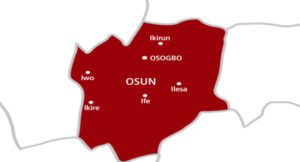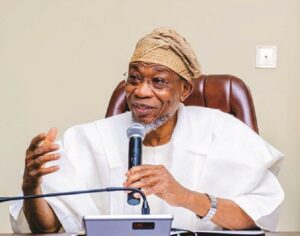


Osun yesteryears, Osun today: What Adeleke should have done differently in 15 months
By Waheed Adekunle
Socrates, a great philosopher once said: “an unexamined life is not worth living.” This simply means that it is important to use our highly developed thinking faculty to raise our existence above that of mere creatures. Eating, sleeping, working and procreating can’t distinguish us from animals. Without thinking, life is not worth living. This thought was completed by Benjamin Franklin, a political philosopher and founding father of the United States who said: “he who fails to plan, plans to fail.” In other words, there should be metrics to measure one’s performance within a specific period of time to know what is being achieved and areas to work harder on for the all round success.
Relating these philosophical cliches to the art of governance in Osun, particularly since the return to democracy in 1999, there is no doubt that the past administrations have genuinely done their bits at setting the enduring pace and place Osun on a sure footing of socioeconomic advancement, political emancipation and corporate growth and development.
The administration of Chief Abdul-Kareem Adebisi Akande began on socioeconomic and political overhauling strictly committed to lifting the state out of her excruciating situation occasioned by the long military presence in the state. Akande’s curiosity for a modern Osun knew no bounds as he built a concrete foundation for Osun as manifested in several kilometers of roads constructed within the first twelve months of his administration. There was a saying during Akande’s regime that says “Ijoba sogbo dile, sogbe digboro, sakitan doja” meaning “the government that is irrevocably committed to socioeconomic development; infrastructural advancement – turning bushes to housing estates and markets to enhance commercial activities, encourage industrialization and investments through rural-urban renewal and migration for the all round success of the state. The Osun State Government Secretariat Complex is a testament to Chief Akande’s legacies.
Similarly, the administration of former Governor Olagunsoye Oyinlola of seven and a half years witnessed different developmental strides but the peak of it was the successful establishment of the state owned tertiary institution known today as Osun State University (Uniosun) with its campuses spread across the zones in the state.
As a bridge-builder whose tenure gave Osun a facelift of development, the eight years of former Governor Rauf Aregbesola didn’t only build on the past gains but equally opened up Osun to the world map, especially in infrastructural renaissance. Though loans were taken to execute some of those projects, no effort was spared to set the state on the pedestal of sustainable infrastructural development purposely designed to guarantee her future population explosion.
In the same vein, the immediate past administration of former Governor Adegboyega Oyetola consolidated on the past gains as he recorded tremendous improvement across sectors of the economy despite the inherent challenges caused by the huge debt profile and lean purse of the state as at the time he assumed Office.
Oyetola’s administration, in four years, reconstructed, renovated and revitalized 332 Primary Healthcare Centres – one per political Ward across the nooks and crannies of the state – an enduring legacy and feat never attained by any state government, safe for Lagos, in the history of Nigeria.
Among several other infrastructural projects completed, the administration also built many historical roads that had been practically abandoned for ages by successive governments and which had become death traps not only for the dwellers of those affected communities but also for the people plying through the ancient roads for one reason or the other.
Above all, the four years administration of former Governor Oyetola now Minister of Marine and Blue Economy built the state-of-the-art Olaiya iconic flyover bridge despite the palpable meagre resources that accrued to the state among other challenges that bedeviled the administration, chiefly the COVID-19 and EndSARS protest.
However, the current administration under the leadership of Senator Ademola Adeleke appears to have been revolving the orbit in search of reality, as it is not clear to anyone, the direction the government is tilting towards in the last 15 months.
The citizens were promised a drastic change in the art of governance within six months of coming into office. Osogbo residents were promised a total turnaround of infrastructural development capable of turning the ancient town to ‘Small London and Small Dubai’ – all within six months. Dollars, Euros and Pounds ( from the thriving family business) were promised to complement the resources of the state for greater development. He also promised to reform Local Government Administration by returning governance to the grassroots. Youths were promised to be fully engaged into civil service, public service, agriculture, commerce and industry – through massive investments capable of generating jobs and profits for the state and her citizens. Mining, education, health, agriculture, commerce and industry among other sectors were promised to be revamped within the possible shortest time. But lo and behold, none of the aforementioned have come to pass in the last fifteen months of being at the helm of affairs of the state.
It is disheartening that the first and ever project reeled out for execution, that is, the borehole project, failed fantastically. The borehole drilling which was conceptualized by Adeleke’s government a few months after taking the mantle of leadership of the state, was to complement the existing ones dug in many of the primary health centres revitalized by his predecessor across the state. It turned out that many of the acclaimed boreholes of the government of the day were imaginary. They only existed only on paper, but not in reality. Where a handful were constructed, many of those boreholes are not functional, so are not serving the purpose for which they were constructed.
Aside from this, nothing spectacular has been witnessed as development since the inception of the present administration other than Executive Order that has taken the state back to the primitive era. A lot of infractions have been committed leading to the: sack of many workers including the Rector of Osun State Polytechnic, Iree; demotion of top bureaucrats including Permanent Secretaries appointed by Oyetola’s administration; removal of the traditional rulers, express dissolution of Statutory and Non-Statutory Commissions, dismissal of the elected Council Chairmen and a heinous attempt to oust the incumbent Chief Judge of the state, Justice Adepele Ojo.
If the incumbent government had been faithful to promises made, it would have made an impact at least in the lives of a fraction or segment of the populace if not all. Had it been there is sincerity of purpose within the ruling class, the state would have achieved far better and it wouldn’t have remained stagnant as it is. Had it been it was a government that prioritises the welfare and general wellbeing of the masses, a lot of life-changing policies would have been formulated and implemented to impact meaningfully in the lives of the people judging from the crazy funds and accrued revenues received thus far. Had it been there is a serious government in place, effort would have been intensified to cushion the effect of subsidy removal on the lives of the people of the state, at least to complement frantic effort of the federal government in that regard. If it was to be a truly people-oriented government, accountability, transparency and probity would have been its watchword and there would not have been any reason for hiding the identity of the contractors handling public projects let alone the contract costs.
It is regrettable that profligacy has become the order of the day in the state as its stems of cancerous tumor has resorted into bloated political appointments, among other frivolities, taking away the larger chunks of the state’s resources and leaving many in avoidable hopelessness, hunger and poverty. The sleepless public lens of adjudication is watching day and night.
May God heal our land!



